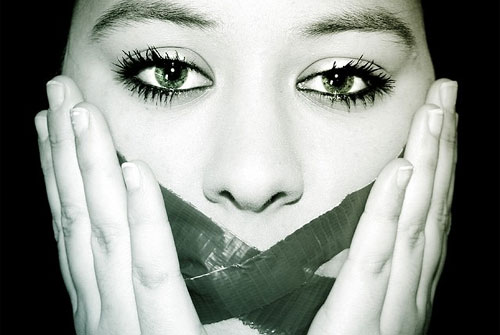|
The silent majority must speak out
Daily Mirror Editorial Nov 4, 2011 | |
 The sad news of the manner in which Libyan leader Muammar Gaddafi, who had ruled the country for 42 years was killed or executed and his body exposed in a slaughter house for three days before being buried in an undisclosed place reminds us about the age old dictum “power corrupts and absolute power corrupts absolutely”. What happened in Libya was part of what is being hailed as the Arab Spring or the people power revolutions against dictatorial rule and large scale corruption by the ruling elite or family. Symbolic support for the liberation process came from the Nobel Prize Committee when it awarded the coveted peace prize to three women in the explosive region. What happened to Col. Gaddafi is the story of any leader who usurps the power of the people, plunders their wealth and destroys the nation. The history of humankind is blotted with many such stories. In earlier times it was the rulers who were in the northern part of the globe and now it is those from the southern part. Reflecting on this reality and connecting it with the Sri Lankan scenario it is clear to critical and independent thinkers that like in Russia where Prime Minister Vladimir Putin is misusing or abusing the constitution to become the all-powerful president again, we in Sri Lanka appear to be taking a similar path by implementing the 18th Amendment, which gives unlimited powers to an executive presidency which already had dangerously excessive powers. One of the moves causing grave concern is the urgent Bill which will allow the government to take over any enterprises or assets that it believes are being underutilized or unproductive. This is the reintroduction of the highly criticised business acquisition act which was implemented in the 1970s and revoked in the late 1980s. Foreign investments began flowing into the country after the revocation of that draconian act but now we appear to be going back to it while at the same time saying direct foreign investments will play a major role in developing post war Sri Lanka to be the economic hub of Asia. Of course one cannot blame only the leaders who are misusing or abusing power because of the military victory of May 2009 Sri Lanka’s civic action or social justice society appears to be inactive or ineffective except for some small protests, which are like pin pricks when compared to the massive and sustained public agitation even by women in the Middle East, North Africa and elsewhere. Sri Lanka sadly lacks a government in waiting unlike in Britain we have no shadow cabinet but only a shadow of what was once our national pride – a vibrant and liberal parliamentary democracy with a dynamic opposition. For this lack of checks and balances which are vital for democracy all Sri Lankans need to take the responsibility for what is happening now and the drastic consequences that may follow for decades or generations to come. Source: Daily Mirror - Sri Lanka
|
|